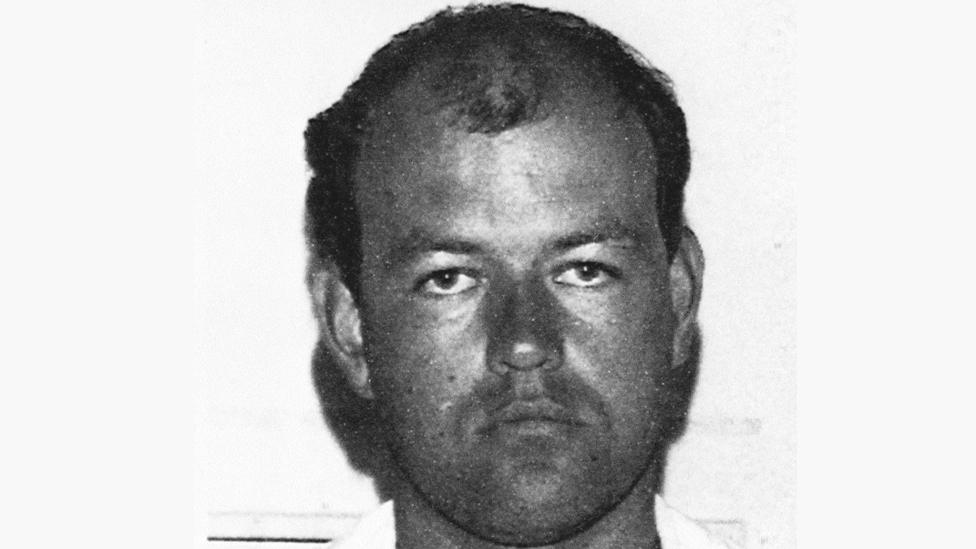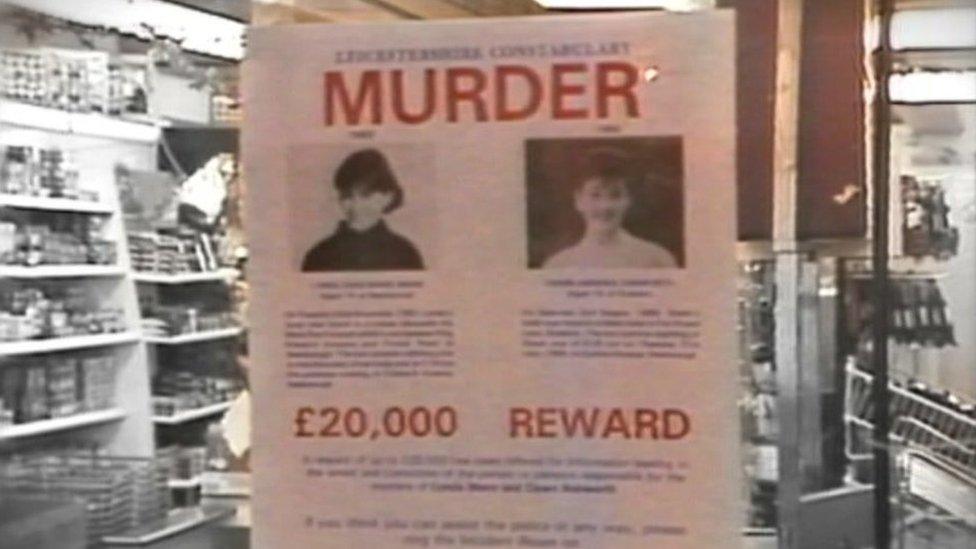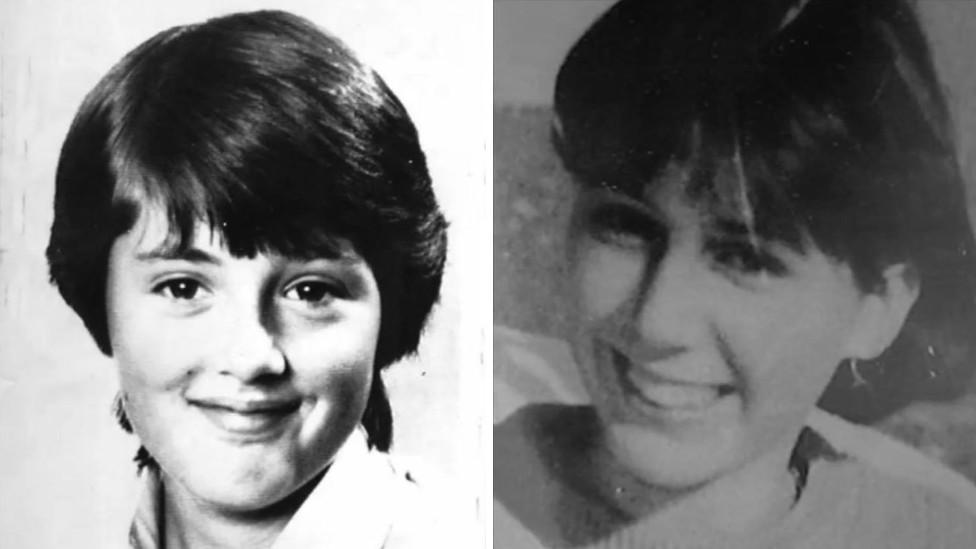Colin Pitchfork: Double child murderer released from prison
- Published

Colin Pitchfork spent 33 years in prison for the murders
Double child killer Colin Pitchfork has been released from prison, the Ministry of Justice has confirmed.
He was jailed in 1988 for raping and murdering 15-year-olds Lynda Mann and Dawn Ashworth in Leicestershire.
In June, the Parole Board concluded it was safe to release Pitchfork, who was the first murderer to be convicted using DNA evidence.
The MoJ said Pitchfork, 61, would remain under supervision for the rest of his life.
Pitchfork raped and strangled Lynda Mann in Narborough in November 1983 and killed Dawn Ashworth three years later.
He was caught following an unprecedented mass screening of 5,000 men using pioneering DNA profiling technology.
He pleaded guilty to both murders and was given a life sentence in January 1988.

The killings led to a major manhunt before Pitchfork was arrested
Following a hearing earlier this year, the Parole Board concluded Pitchfork met all the criteria for release from prison, subject to conditions.
The decision was attacked by several MPs and victims' family members, prompting the government to formally challenge the decision on the grounds it was "irrational".
But this was rejected by a judge-led review in July, leaving opponents powerless to halt the release.
A Ministry of Justice spokesperson said: "Our heartfelt sympathies remain with the families of Lynda Mann and Dawn Ashworth following the independent Parole Board's decision to release Colin Pitchfork.
"Public safety is our top priority, which is why he is subject to some of the strictest licence conditions ever set and will remain under supervision for the rest of his life."

Dawn Ashworth and Lynda Mann were murdered by Pitchfork three years apart in the 1980s
Barbara Ashworth, mother of Dawn Ashworth, said: "Well it was on the books that he was going to be released, but I don't think he should be breathing the same air as us.
"It goes without saying that life should have meant life in his case, because he said he was guilty of the offences, the murders of both the girls... and he did a lot more besides."
The Parole Board said Pitchfork's licence conditions include living at a designated address, taking part in probation supervision, wearing an electronic tag, taking part in lie detector tests and having to disclose what vehicles he uses and who he speaks to, with particular limits on contact with children.
He will also be subject to a curfew, have restrictions on using technology and limits on where he can go. He is banned from entering Leicestershire without the permission of officials.


Colin Pitchfork has now been transferred from prison to an "Approved Premises" - a hostel run by the Probation Service to help settle offenders who leave jail after a long sentence.
From there, he will eventually have the opportunity to move to his own home - but before that can happen he must prove he is complying with all his licence conditions.
He's now subject to 36 strict monitoring conditions on top of the standard restrictions placed on anyone serving part of their sentence in the community.
These led the Ministry of Justice to conclude he is going to be one of the most closely monitored lifers out in the community for many, many years to come.
Of course if he steps out of line he can be recalled back to prison at the drop of a hat.

South Leicestershire MP Alberto Costa, who campaigned to stop Pitchfork's release, said he was "extremely saddened and disappointed".
"While I respect the Parole Board's decision to reject the government's challenge against his release, I do not agree with it," he said.
"In my view, Pitchfork still presents a very real danger to the public.
"Questions will of course remain as to whether someone who has committed such heinous crimes should ever be released. In cases such as these where two innocent girls were murdered in the most horrendous fashion, life should simply mean life.
He added that the case showed the Parole Board's processes needed a reform and said the system should "work better for victims and their families".

Follow BBC East Midlands on Facebook, external, Twitter, external, or Instagram, external. Send your story ideas to eastmidsnews@bbc.co.uk, external.
Related topics
- Published13 July 2021

- Published7 June 2021
